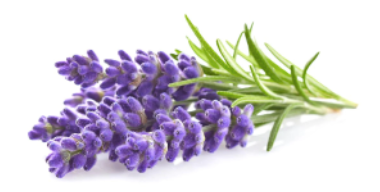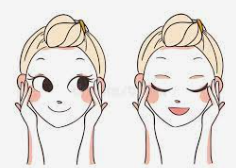Blue Tree Aroma
Lavender Kashmir Essential Oil
Pickup available at 12/1 Vasant Vihar Kanke Road
Usually ready in 24 hours
Enjoy the calming, floral scent of Lavender Kashmir. Ideal for relaxation, stress relief, and better sleep. Perfect for aromatherapy or skincare. Pure, soothing, and natural.
LAVENDER ESSENTIAL OIL : MEDICINE CHEST IN A BOTTLE

Highly Symbolic
Lavender is commonly associated with purity, devotion, serenity and calmness. These themes are often related to the ways lavender is used. Calmness and serenity point toward lavender's uses in aiding sleep and easing anxiety. Purity is shown through lavender's use throughout history in cleaning and its associations with cleanliness.
It Has Ancient Roots
The origin of Lavender is believed to be from the Mediterranean, Middle East and India. Its history goes back some 2500 years. Lavender is a flowering plant of the mint family known for its beauty, its sweet floral fragrance and its multiple uses.
- The ancient Egyptians made use of lavender during their mummification process, embalming the corpse with perfume.
- The ancient Greeks, on the other hand, used lavender to treat insomnia and ease back pain.
- During the Bubonic Plague in the 17th century, lavender was used as a remedy to ward off potential disease.
- Lavender is actually quite the effective bug repellent!
- When it comes to plant symbolism, lavender represents purity, devotion, serenity, grace, and calmness.
- Unsurprisingly, Queen Victoria was also a huge fan of lavender. She made sure that all of her furniture was cleaned with a lavender-based solution, and her drink of choice was lavender-infused tea to help ease her stomach.

(Queen Victoria)
Love, or the history of lavender affection
Lavender’s association with love extends from Cleopatra to modern times. Tutankhamun’s tomb contained traces of still-fragrant lavender, and it’s said Cleopatra used lavender to seduce Julius Caesar and Mark Antony.

(Cleopatra and Julius Caesar)
Evil, or more commonly known today as microbes
Beyond scenting bed linen and clothing, lavender was hung above doors to protect against evil spirits. We know now it’s a strong antimicrobial that may help prevent certain diseases, but back then the idea was that lavender protected against evil fits.
Sixteenth-century glovemakers who perfumed their ware with the herb were said to not catch cholera. Seventh-century thieves who washed in lavender after robbing graves didn’t get the plague. In the 19th century, gypsy travelers sold bunches of lavender on the streets of London to bring people good luck and protect against ill fortune.

(Lavender flowers are being sold on the Streets of London)
In Spain and Portugal, lavender was traditionally strewn on the floor of churches or thrown into bonfires to avert evil spirits on St. John’s Day. In Tuscany, pinning a sprig of lavender to your shirt was a traditional way to ward against the evil eye. Queen Elizabeth I of England had fresh lavender in vases at her table every day.
Use by ancient doctors
The Greek physician to the Roman army, Dioscorides, wrote that lavender taken internally would relieve indigestion, sore throats, headaches, and externally cleaned wounds.
The Romans named the plant after its use in their bathing rituals (“lava” is to wash), realizing lavender isn’t only relaxing, but also antiseptic.
Sixteenth-century English herbalist John Parkinson wrote that lavender was “especially good use for all griefes and paines of the head and brain,” and Charles VI of France insisted his pillow always contain lavender so he could get a good night’s sleep. People still use lavender in pillows today.
In Asian traditional medicine, lavender has long been used for its “cooling” effect and for helping the “Shen,” or mind, by cooling the heart, helping people relax and find relief from troubles in the mind that give rise to tension in the body.
In more recent history, lavender became famous for its skin healing when René-Maurice Gattefossé, the 1930s French chemist, burned his hand in his laboratory. He applied lavender oil to treat the burn and was so impressed by the quick healing process that he published a book, “Aromathérapie: Les Huiles Essentielles, Hormones Végétales,” and coined the word aromatherapy (the therapy of aromatic plants). Lavender was used by doctors during WWII to heal wounds.
At the same time, a French biochemist, Marguerite Maury, developed a unique method of applying these oils to the skin with massage — hence the practice of aromatherapy massage — now used all over the world.
What makes lavender work?
Like most medicinal plants, lavender contains different active chemicals, and it’s the combined effects of these chemicals that make this plant work like a skilled car mechanic: adept at finely tuning the whole body to make it run smoothly.
For lavender, the chemicals are:
- polyphenols like rosmarinic acid
- flavonoids like apigenin
- volatile aromatics
The main anxiety-relieving components are linalool and linalyl acetate. They’re also found in other relaxing aromatic plants, including citrus fruits, like bitter orange (neroli).
Lavender oil also contains the terpenes cineole and camphor. These are also found in memory-boosting European sage and rosemary.
When purchasing lavender essential oil, see if you can ask about its chemical formulation. The composition of essential oils can vary depending on many factors (such as time of harvest), and some oil can be adulterated with synthetic chemicals.
Lavender should contain:
- 25 to 38 percent linalool
- 25 to 45 percent linalyl acetate
- 0.3 to 1.5 percent cineole
Safety
Lavender is one of the safest plants for general use, and even the essential oil has very low toxicity when used at the correct dose. It may be applied undiluted in minute quantities on the skin, too.
But it’s not without its contraindications. For example, people with sensitive skin may find it irritating. Lavender may also exacerbate sedative or anticonvulsant drugs.
- Lavender oil is mentioned in the Bible numerous times and have been the oil that was used to wash Jesus’ feet.
- During the middle Ages, crushed lavender was a popular condiment and remains a common ingredient in French recipes today.
- Lavender oil is best for sleep and anxiety issues.

(Lavender promotes relaxation and sound sleep)
APPLICATION
- Diffuse it with aroma diffusers.
- Add undiluted lavender oil to your body lotion for a pleasing scent.
- Make a sugar scrub with sugar, undiluted lavender, and oil.
- Rub diluted lavender oil into your scalp to treat dandruff.

Fights Depression

Skin Care

Pleasant Aroma

Diffuse in a aroma diffuser
How to use an Aroma Diffuser?
See the video:

Shipping & Returns
Our policy lasts 15 days. If 15 days have gone by since your purchase, unfortunately we can’t offer you a refund or exchange.
To be eligible for a return, your item must be unused and in the same condition that you received it. It must also be in the original packaging.
Several types of goods are exempt from being returned. Perishable goods such as food, flowers, newspapers or magazines cannot be returned. We also do not accept products that are intimate or sanitary goods, hazardous materials, or flammable liquids or gases.
To complete your return, we require a receipt or proof of purchase.
Please do not send your purchase back to the manufacturer.
Refunds (if applicable)
Once your return is received and inspected, we will send you an email to notify you that we have received your returned item. We will also notify you of the approval or rejection of your refund.
If you are approved, then your refund will be processed, and a credit will automatically be applied to your credit card or original method of payment, within 5-7 of days.
Late or missing refunds (if applicable)
If you haven’t received a refund yet, first check your bank account again.
Then contact your credit card company, it may take some time before your refund is officially posted.
Next contact your bank. There is often some processing time before a refund is posted.
If you’ve done all of this and you still have not received your refund yet, please contact us at info@bluetreearoma.com
Sale items (if applicable)
Only regular priced items may be refunded, unfortunately sale items cannot be refunded.
Exchanges (if applicable)
We only replace items if they are defective or damaged. If you need to exchange it for the same item, send us an email at aromabluetree@gmail.com and send your item to: 12/1 Vasant Vihar Kanke Road, Near Panchwati Apartment, 834008 Ranchi JH, India.
Gifts
If the item was marked as a gift when purchased and shipped directly to you, you’ll receive a gift credit for the value of your return. Once the returned item is received, a gift certificate will be mailed to you.
If the item wasn’t marked as a gift when purchased, or the gift giver had the order shipped to themselves to give to you later, we will send a refund to the gift giver and he will find out about your return.
Shipping
To return your product, you should mail your product to: 12/1 Vasant Vihar Kanke Road, Near Panchwati Apartment, 834008 Ranchi JH, India
You will be responsible for paying for your own shipping costs for returning your item. Shipping costs are non-refundable. If you receive a refund, the cost of return shipping will be deducted from your refund.
Depending on where you live, the time it may take for your exchanged product to reach you, may vary.













